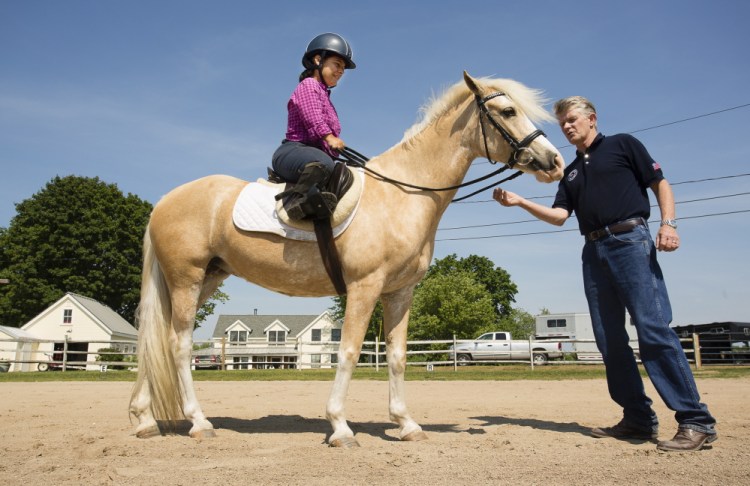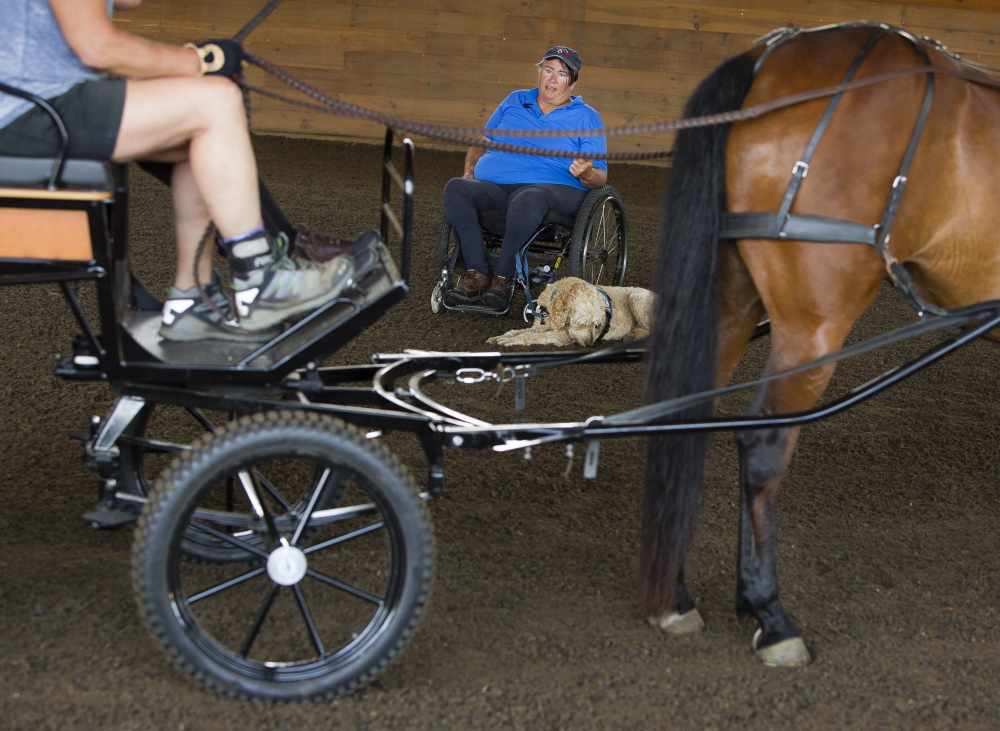LYMAN — Coach Kai Handt stood in the fenced-in ring at Carlisle Academy issuing quiet commands to Meghan Benge of Aiken, South Carolina, and her horse, Zoe.
Horse and rider were getting one-on-one time with Handt, one of the premier para-dressage coaches in the world, on the final day of Para-Equestrian Pipeline Training Camp for emerging para-equestrian athletes and coaches.
The camp was designed and hosted by Carlisle Academy, an integrative equine sports and therapy center, and its partners, the U.S. Para-Equestrian Association and the U.S. Equestrian Federation. Para-equestrian sports are for athletes who have physical disabilities.
Sarah Armentrout, head of school at Carlisle Academy, said the camp is designed to give the participating para-equestrians a deeper understanding of what it takes to compete on the national and international levels.
“This is sports. This is not therapy,” Armentrout said.
The five-day camp gave the 10 athletes a chance to make friends with people who share their passion for horse training.
Benge, a graphic designer and photographer who has dwarfism, said the camp was well worth the long drive from South Carolina. A para-driving champion, Benge said the camp may have given her enough confidence to consider competitive para-dressage.
Dressage is a form of exhibition riding in which the horse performs a series of predetermined moves characterized by prancing steps and gaits.
Suzanne Ament, a blind Russian history professor at Radford University in Radford, Virginia, said she got interested in dressage through a friend who competed in dressage in the Paralympic Games. She now has her own horse and aspires to owning her own dressage arena. She said she learned a lot at the Lyman camp.
“To work with world class coaches is amazing,” Ament said.
Ament said horses know when they are carrying a disabled rider, a sense shared by her fellow para-equestrians.
“They are formidable creatures. It makes me cry – these huge creatures love us so much and will do what we want,” said Ament.
Ament also made some new friends, including Maggie Harling, a retired emergency room physician who has multiple sclerosis.
Harling, who lives in Northboro, Massachusetts, said she rode horses as a child growing up in England but started riding as an adult four years ago.
“All of us are trying to go beyond our comfort zones. It gives a great sense of satisfaction,” said Harling.
Abbott Philson, 31, of Cumberland said his goal is to make it to the dressage events at the Paralympic Games someday. Philson, who has Prader-Willi syndrome, a genetic disorder, said he has been riding horses for 17 years. He said dressage training forces him to become more focused.
“It is all about training and getting into the mindset,” said Philson.
Send questions/comments to the editors.





Success. Please wait for the page to reload. If the page does not reload within 5 seconds, please refresh the page.
Enter your email and password to access comments.
Hi, to comment on stories you must . This profile is in addition to your subscription and website login.
Already have a commenting profile? .
Invalid username/password.
Please check your email to confirm and complete your registration.
Only subscribers are eligible to post comments. Please subscribe or login first for digital access. Here’s why.
Use the form below to reset your password. When you've submitted your account email, we will send an email with a reset code.